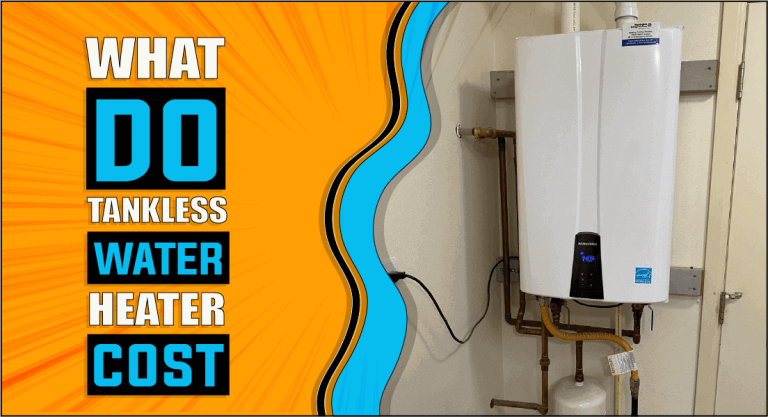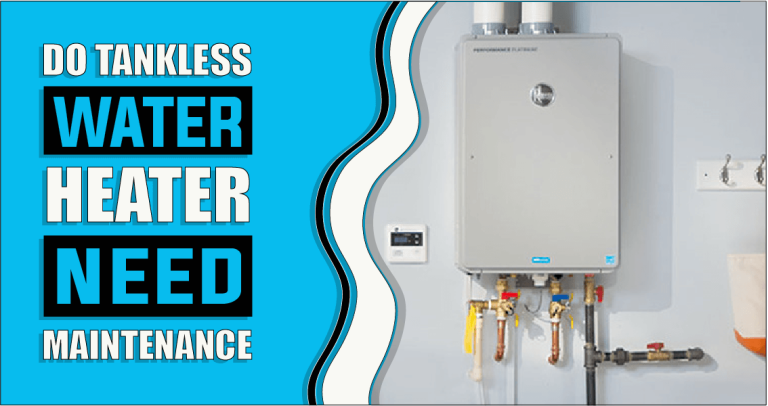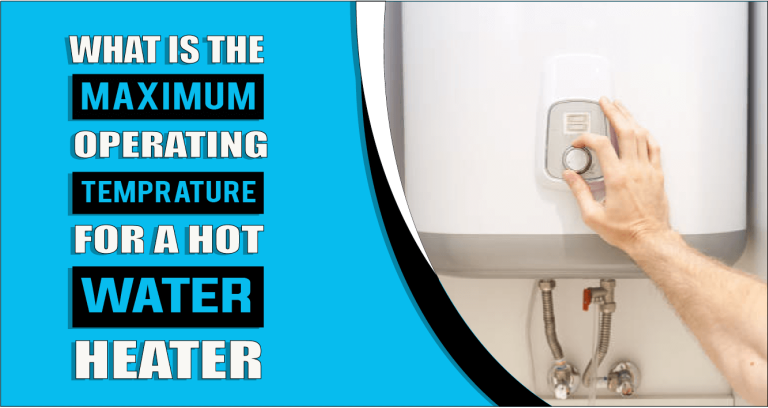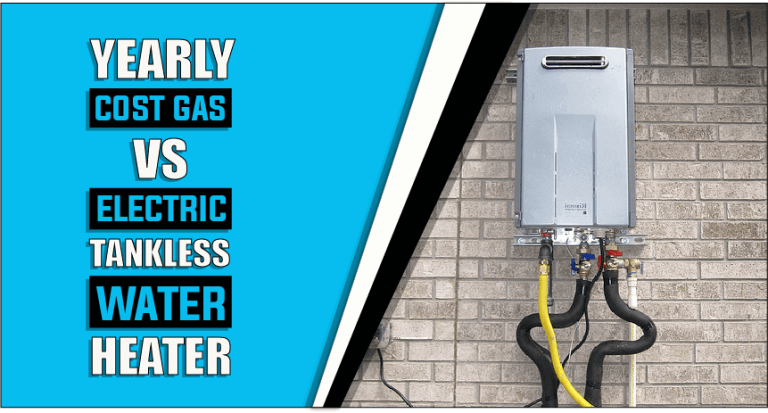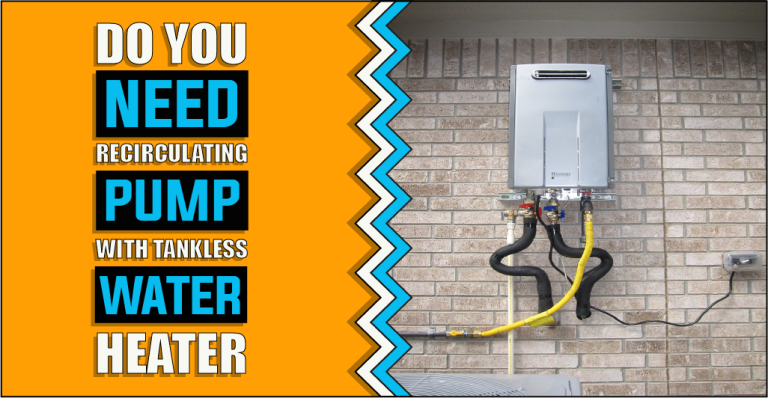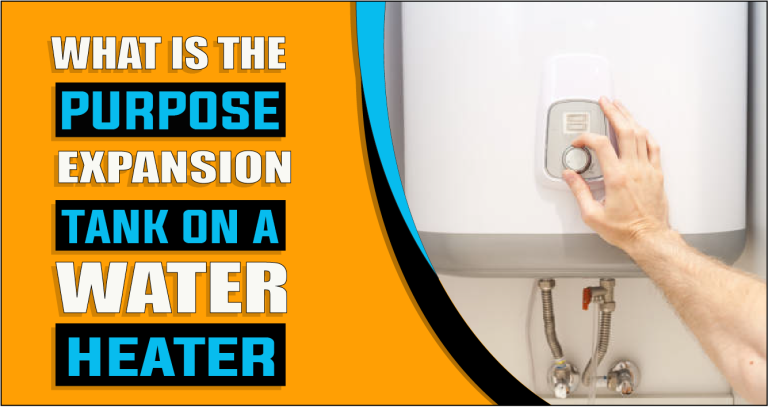What Is A Heat Pump Hot Water Heater | A Comprehensive Buyer’s Guide
In an era where energy efficiency and environmental sustainability are paramount, home heating and cooling system innovations continue to gain attention. One such innovation is the heat pump water heater, which promises significant energy savings and reduced carbon footprints for households and businesses. But precisely what is a heat pump water heater, and how does it differ from traditional water heaters? In this article, we’ll delve into the world of heat pump water heaters, exploring their operation, advantages, installation considerations, and potential cost savings. Whether you’re considering upgrading your water heating system or simply curious about the latest energy-efficient technologies, stay with us to uncover the ins and outs of the heat pump water heater and why it’s becoming a popular choice for eco-conscious homeowners and businesses. Without any further delay, let’s get started!
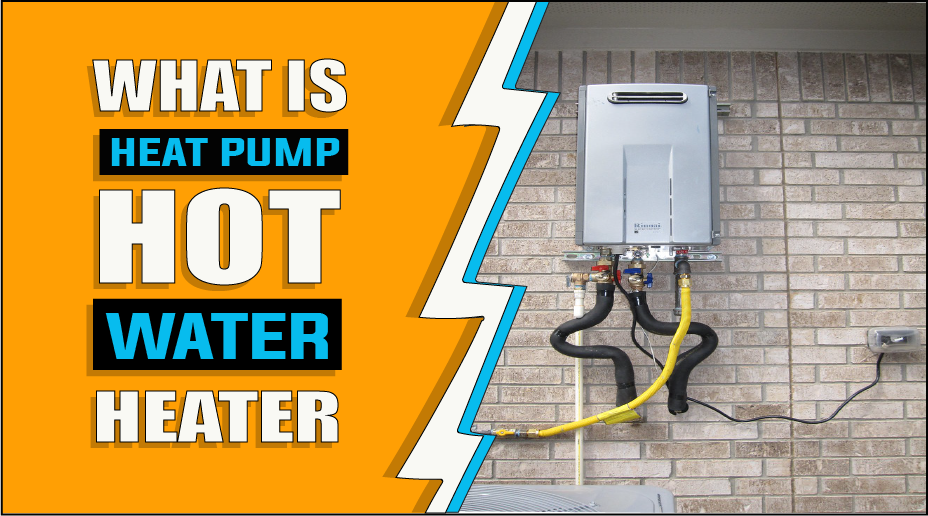
An Overview of Heat Pump Hot Water Heater
A heat pump water heater is a modern and energy-efficient alternative to traditional water heaters. It utilizes a unique technology that transfers heat from the surrounding air to heat the water, resulting in significant energy savings. This innovative system operates on the same principles as a space heating or cooling heat pump.
Unlike conventional electric resistance water heaters, which generate heat directly using electrical elements, heat pump water heaters work by extracting heat from the ambient air and transferring it to the water. This process requires much less energy, making them an eco-friendly option for heating water.
The water heater comprises a heat pump unit and a storage tank. The heat pump unit contains a compressor and a refrigerant that absorbs heat from the air and increases its temperature. The heated refrigerant then circulates through a coil inside the storage tank, transferring the heat to the water. The process continues until the desired water temperature is reached.
One of the key advantages of a heat pump water heater is its high energy efficiency. Utilizing heat from the air can deliver more heat output than the energy input it consumes.
This results in lower energy bills and reduced greenhouse gas emissions. Additionally, these systems can be integrated with solar panels to enhance their energy-saving capabilities further.
Components of Heat Pump Water Heaters
Heat pump water heaters have several key components that provide efficient and reliable hot water heating. Here are the main components:
- Heat Pump Unit: This is the heart of the system and contains components such as the compressor, evaporator coil, condenser coil, and refrigerant. The heat pump unit extracts heat from the surrounding air and transfers it to the water.
- Storage Tank: The storage tank holds the heated water until needed. It is typically insulated to minimize heat loss and maintain the temperature of the stored water.
- Heat Exchanger: The heat exchanger is a coil or tube inside the storage tank that transfers heat from the refrigerant to the water. It helps raise the temperature of the water to the desired level.
- Expansion Valve: The expansion valve controls the flow of refrigerant, allowing it to expand and cool down before entering the evaporator coil. This process enables the refrigerant to absorb heat from the ambient air more effectively.
- Control Panel: The control panel provides a user-friendly interface and settings for the heat pump water heater. It allows users to adjust temperature settings, view system status, and access additional features like energy-saving modes or timers.
- Air Filter: The air filter prevents dust, debris, and other particles from entering the heat pump unit. Regular cleaning or replacing the air filter is necessary to ensure optimal performance and efficiency.
These various components work harmoniously to extract heat from the air and transfer it to the water, providing hot water for domestic use while maximizing energy efficiency.
Heat Pump Hot Water Heater — Top Perks
As the quest for energy-efficient and environmentally friendly technologies intensifies, the heat pump water heater has emerged as a star player in residential and commercial water heating. This innovative appliance offers a range of compelling advantages – making it a smart choice for those seeking to reduce energy consumption and minimize their carbon footprint. Let’s explore the top perks of opting for a heat pump water heater:
1) Remarkable Energy Efficiency:
One of the most significant advantages of a heat pump water heater is its exceptional energy efficiency. Unlike traditional water heaters that rely solely on electrical resistance or combustion to generate heat, heat pump water heaters leverage the principles of heat transfer. They extract heat from the surrounding air or ground, making them up to 2-3 times more energy-efficient than conventional heaters. This translates to lower energy bills and reduced greenhouse gas emissions.
2) Cost Savings Over Time:
Due to their energy efficiency, heat pump water heaters can substantially reduce your monthly energy bills. While the initial purchase price may be slightly higher than traditional heaters, the long-term savings can be substantial. Homeowners often recoup the upfront cost through lower utility bills within a few years.
3) Environmentally Friendly:
Heat pump water heaters are a greener choice for water heating. They produce fewer greenhouse gas emissions by relying on ambient heat sources rather than burning fossil fuels. This reduces your carbon footprint and contributes to a more sustainable future.
4) Versatility and Adaptability:
Heat pump water heaters are versatile and can be installed in various locations, including basements, garages, or outdoors. They are particularly well-suited for homes with limited space as they don’t require venting like some traditional heaters. Additionally, they can operate efficiently in diverse climates.
5) Low Operating Noise:
Compared to traditional water heaters, heat pump models are quieter in operation. They don’t rely on combustion, resulting in reduced noise levels during heating cycles, making them less disruptive in your living environment.
6) Longer Lifespan:
Heat pump hot water heaters have a longer lifespan than traditional heaters. While traditional tanks may last around 10-15 years, heat pump models can often endure 15-20 years or more with proper maintenance.
7) Federal and State Incentives:
Many governments offer incentives, rebates, or tax credits to encourage the adoption of energy-efficient appliances, including heat pump water heaters. These financial incentives can help offset the initial purchase cost and make the transition to a heat pump heater even more cost-effective.
8) Reduced Heat Loss:
Traditional water heaters often suffer from standby heat loss, where heat escapes through the tank walls. Heat pump models don’t have a tank, eliminating this source of inefficiency. They only heat water when it’s needed, further conserving energy.
Cost of Heat Pump Water Heaters
The cost of heat pump water heaters can vary depending on brand, capacity, features, and installation requirements. According to sources, the price range for heat pump water heaters is typically between $1,500 and $3,000, which is significantly higher than conventional hot water heaters ranging from $500 to $1,000 (Forbes).
While the upfront cost may be higher, heat pump water heaters offer long-term savings on electric bills. Consumer Affairs states that a household of four people can save around $330 per year on electricity expenses with a heat pump water heater (Consumer Affairs).
When considering the overall cost, factoring in the installation expenses is essential. The cost of installing a heat pump water heater can vary, with estimates ranging from $1,000 to $3,000 for labor and materials, in addition to the unit cost (Energy Star). HomeWyse says a plumber typically takes about 6 hours to install a hybrid heat pump water heater, with installation costs between $600 and $800 (Carbon Switch).
Ultimately, the cost of a heat pump water heater depends on individual preferences, energy-saving goals, and available budget. While the initial investment may be higher, the potential long-term energy savings and environmental benefits make heat pump water heaters worthwhile.
How Does a Heat Pump Water Heater Work?
A heat pump water heater utilizes the surrounding air to heat water efficiently. Unlike conventional water heaters that generate heat directly, a heat pump water heater works on the same principles as a refrigerator but in reverse. Let’s explore how it works.
- The process begins with a fan at the top of the unit drawing in ambient warm air from its surroundings. This air contains thermal energy that can be harnessed. The heat pump extracts this heat from the air using a refrigerant and an evaporator coil. As the refrigerant evaporates, it absorbs heat energy from the air.
- The heated refrigerant then passes through a compressor, which increases its temperature and pressure. This high-pressure, high-temperature refrigerant flows into a condenser coil within the storage tank. Here, the hot refrigerant releases its heat, transferring it to the water stored in the tank.
- As the water absorbs the heat, it becomes hotter and is ready for use whenever needed. The cooled refrigerant then returns to the evaporator coil to repeat the cycle.
- Using the existing heat in the air, heat pump water heaters can operate more efficiently than traditional electric resistance water heaters. They can provide significant energy savings by consuming less electricity to heat the water.
In a nutshell, a heat pump water heater extracts heat from the surrounding air and transfers it to the water, providing an efficient and eco-friendly solution for hot water needs.
Heat Pump Hot Water Heater Maintenance Requirements
Maintaining your heat pump water heater ensures its longevity and optimal performance. While these systems are known for their efficiency and reliability, regular upkeep can further enhance their efficiency and prevent potential issues. Here are the essential maintenance requirements for a heat pump water heater:
1. Filter Cleaning or Replacement:
Many heat pump water heaters come equipped with air filters that help keep dust and debris out of the system. These filters should be checked, cleaned, or replaced regularly, usually every three to six months, to maintain efficient airflow.
2. Check Refrigerant Levels:
Proper refrigerant levels are crucial for the heat pump’s cooling and heating processes. Periodically inspect the refrigerant levels and consult a professional technician if you suspect a refrigerant leak or low levels.
3. Inspect the Evaporator and Condenser Coils:
Over time, dirt and dust can accumulate on the evaporator and condenser coils, reducing efficiency. Regularly clean these coils to ensure optimal heat transfer. Be sure to turn off the power to the unit before cleaning.
4. Monitor for Leaks:
Check for any signs of water leakage around the unit. If you notice leaks, address them promptly to prevent damage to the system or surrounding areas.
5. Verify Proper Ventilation:
Ensure the heat pump water heater has adequate ventilation to operate efficiently. Clear any obstructions around the unit to maintain proper airflow.
6. Follow the Manufacturer’s Recommendations:
Manufacturers typically provide maintenance guidelines specific to their heat pump water heaters. These recommendations include filter replacement, coil cleaning, and other maintenance tasks.
7. Regular Professional Inspections:
Schedule regular professional inspections of your heat pump water heater. Technicians can identify and address issues early, ensuring your system operates at its best.
8. Address Strange Noises or Performance Issues:
Don’t hesitate to seek professional assistance if you notice unusual noises, a decrease in hot water output, or any other performance issues. Prompt repairs can prevent more significant problems.
By following these maintenance requirements, you can extend the lifespan of your heat pump water heater, maintain its energy efficiency, and enjoy reliable hot water for years to come.
Conclusion:
In conclusion, a heat pump water heater is an energy-efficient and environmentally friendly alternative to traditional water heaters. By utilizing electricity to transfer heat from the surrounding air or ground, these units can provide significant energy savings and lower utility bills in the long run.
Despite the higher upfront cost, the savings over time make them a financially wise choice for many homeowners. However, it’s essential to consider the limitations of heat pump water heaters, such as reduced performance in colder climates and the need for adequate installation space.
Overall, energy efficiency, environmental friendliness, and potential cost savings make heat pump water heaters attractive for those looking to reduce their carbon footprint and save on energy consumption.
Relevant Questions:
Heat pump water heaters are generally quieter than traditional water heaters, especially those that rely on combustion. However, the noise level can vary depending on the specific model and installation.
The amount of energy savings depends on factors such as your current water heating system, usage patterns, and local energy costs. On average, heat pump water heaters can be 2-3 times more energy-efficient than traditional heaters, leading to substantial savings over time.
Yes, heat pump water heaters are considered environmentally friendly. They produce fewer greenhouse gas emissions by reducing reliance on fossil fuels and utilizing existing heat sources. This contributes to a greener environment and helps combat climate change.
Heat pump water heaters perform well in moderate climates with a relatively stable temperature range. However, their efficiency may be reduced in colder climates where the air temperature drops significantly. Additional measures like insulation or a backup heating element may be required in such cases.
Heat pump water heaters typically cost more upfront than traditional water heaters. However, the long-term energy savings and potential incentives or rebates can help offset this initial investment, making them a financially wise choice over time.
Yes, heat pump water heaters have specific installation requirements. They require adequate space for installation, including clearance around the unit for proper airflow. Additionally, the location should have good ventilation and be away from heat sources or direct sunlight. It is recommended to consult a professional plumber or HVAC technician for proper installation guidance.
Ella John is passionate about helping her readers make the best choice when purchasing a heater. She understands that selecting a heater can be difficult and strives to provide information to help make the decision easier. Ella’s website, Heatersinfo.com, provides valuable insight into heating trends and types of heaters and tips on how to care for them. She also advises selecting the right heater based on individual needs and preferences. Her expertise in electronics makes her an excellent source of knowledge, and she is confident that anyone who visits her website will find the perfect heater information for their needs. Ella’s dedication to helping others make educated decisions about buying the right heater is unparalleled, and she hopes to continue offering her expertise for many years. With Ella’s help, finding the perfect heater can be a breeze!

